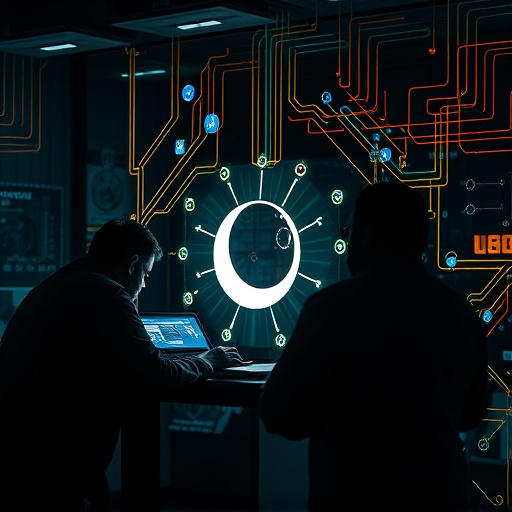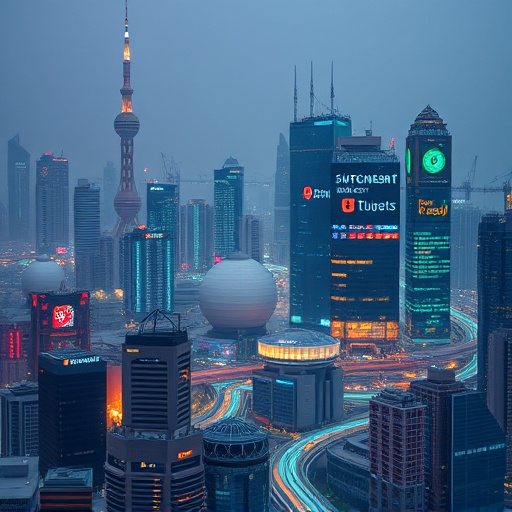Karachi, Pakistan's vibrant coastal city, is a thriving tech hub strategically positioned to drive technological growth nationwide. Its role as a gateway for tech imports, coupled with favorable policies and infrastructure, fosters a robust ecosystem. The city's economic power and skilled workforce attract global investments, making it a regional leader in digital transformation. To maximize its potential, Karachi must address regulatory challenges, enhance supply chain security, and promote local entrepreneurship, ensuring its competitiveness in the global tech landscape.
“Karachi, Pakistan’s vibrant metropolitan center, has emerged as a thriving tech hub, driving the nation’s digital transformation. This city’s role as a major import gateway highlights the intricate relationship between its economic vitality and global technology trends. This article explores Pakistan’s tech import policies, focusing on Karachi’s unique position. We delve into regulatory factors shaping the industry, analyze current prospects, and discuss challenges, offering insights into the future of tech imports in this dynamic region.”
- Karachi: The Tech Hub and Import Gateway
- Pakistan's Tech Import Policies: An Overview
- Factors Influencing Import Regulations in Karachi
- Future Prospects and Challenges for Karachi's Tech Imports
Karachi: The Tech Hub and Import Gateway

Karachi, Pakistan’s vibrant metropolis, has emerged as a tech hub and a pivotal gateway for technological imports into the country. As the financial and industrial center, it is home to numerous tech startups, innovation hubs, and established companies that drive the nation’s digital transformation. This bustling city’s strategic location along the coast makes it an ideal import/export node, facilitating the inflow of advanced technology and machinery from global leaders in the sector.
The city’s role as a tech import policy gateway is further enhanced by its robust infrastructure, including seaports and airports, which ensure efficient logistics and supply chain management for international trade. Karachi’s tech ecosystem thrives on this easy access to cutting-edge equipment and components, fostering growth and innovation that ripple across Pakistan’s digital landscape.
Pakistan's Tech Import Policies: An Overview

Pakistan’s tech industry has been experiencing a surge, largely driven by its vibrant tech hub in Karachi. The country’s Tech Import Policies play a pivotal role in shaping this growth. These policies are designed to foster innovation while ensuring strategic technology acquisition. Key regulations include special economic zones (SEZs) that offer tax incentives and streamlined customs procedures for tech imports, attracting foreign investment and facilitating the entry of cutting-edge technologies.
Additionally, Pakistan’s government has implemented measures to promote local manufacturing and reduce reliance on imports. This includes technical support and training programs aimed at upskilling the workforce, as well as initiatives to encourage research and development (R&D) within the country. The balance between these policies is crucial for sustaining a healthy tech ecosystem in Karachi and across Pakistan.
Factors Influencing Import Regulations in Karachi

Karachi, as Pakistan’s economic hub and a major port city, plays a pivotal role in shaping the country’s tech import policies. Several factors influence the import regulations here, contributing to a dynamic and ever-evolving technological landscape. One significant factor is the city’s strategic location, making it a gateway for international trade. This positions Karachi as a prime destination for tech companies seeking to enter the Pakistani market.
Additionally, the local government in Karachi has been proactive in facilitating and regulating tech imports. They understand the importance of technology for economic growth and development, so they’ve implemented policies that support and encourage the influx of technological advancements while ensuring compliance with national standards and regulations. These measures have significantly impacted the city’s ability to attract foreign investments and foster a thriving tech ecosystem.
Future Prospects and Challenges for Karachi's Tech Imports

Karachi, as Pakistan’s financial and industrial hub, is poised for significant growth in tech imports. The city’s strategic location and robust infrastructure make it an ideal gateway for technological advancements from around the globe. With a favorable business environment and a skilled workforce, Karachi has the potential to become a regional tech hub, attracting investments and fostering innovation.
However, challenges remain. Navigating complex regulatory frameworks, ensuring secure supply chains, and addressing logistical bottlenecks are crucial steps in realizing Karachi’s full potential. Additionally, fostering local tech entrepreneurship and creating sustainable job opportunities will be essential to managing future prospects effectively. As the digital landscape evolves, Karachi must adapt to stay competitive, leveraging its strengths while tackling these challenges head-on.
Karachi, as Pakistan’s leading tech hub and import gateway, plays a pivotal role in shaping the country’s digital landscape. The city’s robust infrastructure and favorable policies have attracted global tech companies and facilitated the import of cutting-edge technology. However, navigating the complex web of import regulations remains crucial for sustainable growth. By addressing factors influencing these regulations and embracing future prospects, Karachi can continue to be a game-changer in Pakistan’s tech sector, ensuring continued innovation and enhanced digital connectivity.
